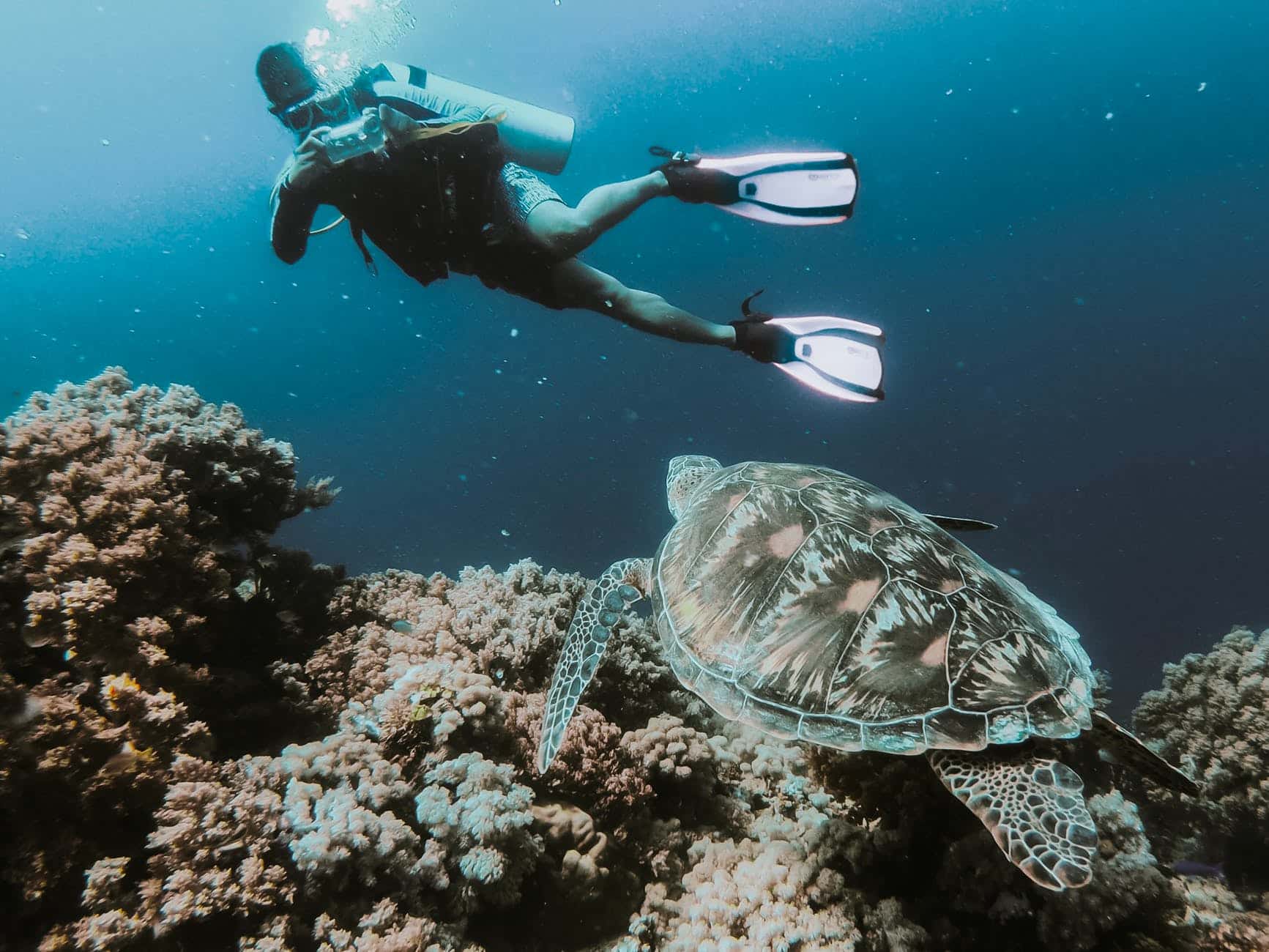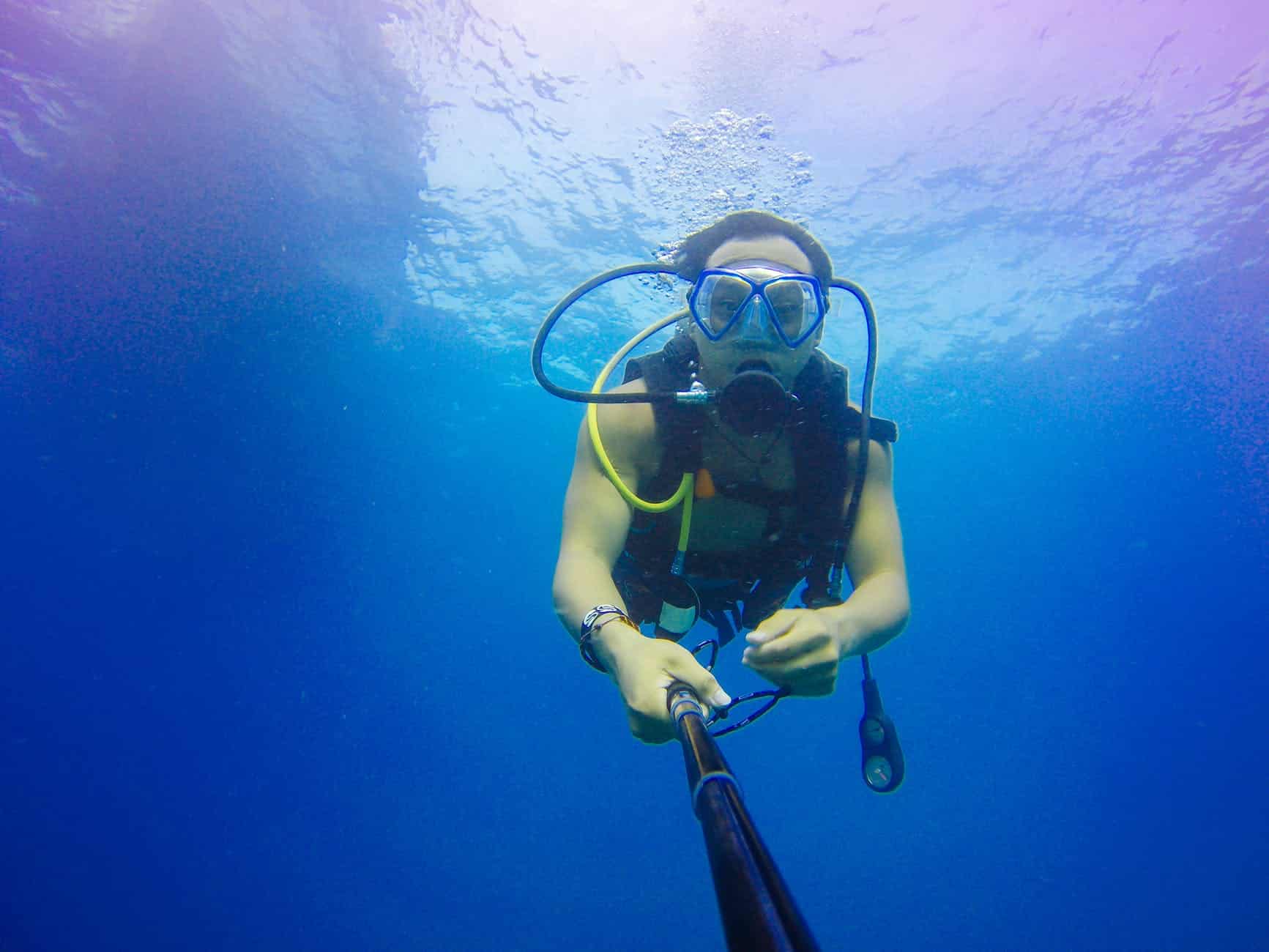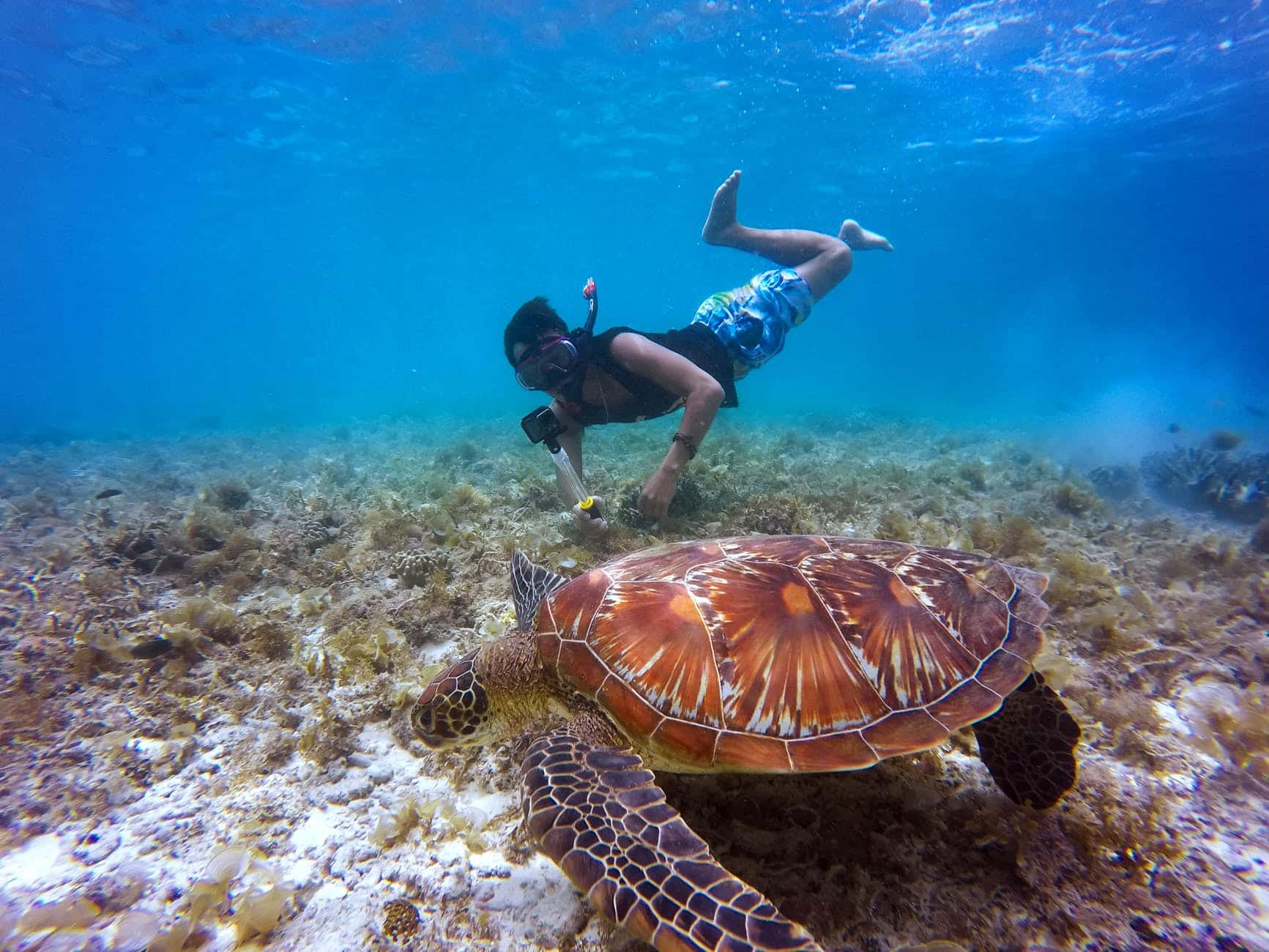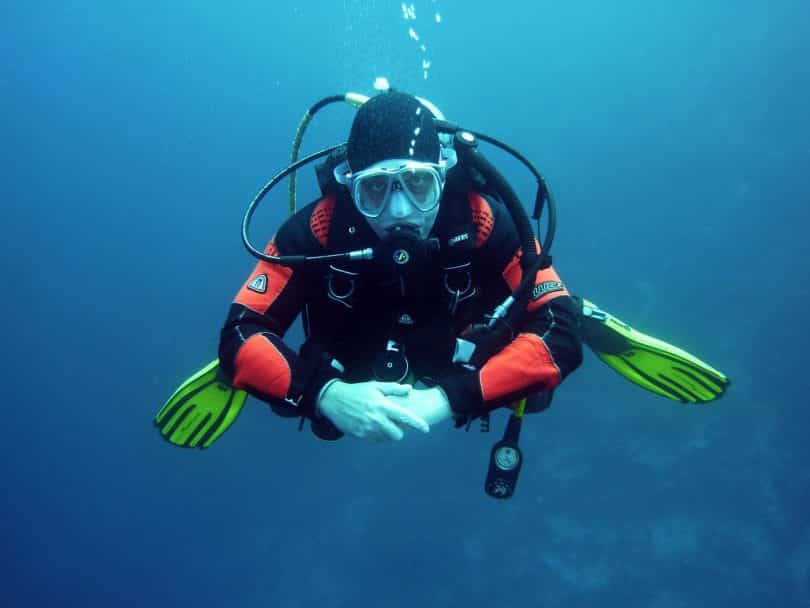Have you ever wondered what it would be like to explore the world beneath the waves? To see kaleidoscopic coral reefs and schools of glittering fish? To float weightlessly like an astronaut or investigate unusual species like a field researcher? Deep sea diving can make these dreams a reality. If you want to take a dip and see marine life in its true essence, you’re in the right place. In this guide, we’ll teach you the basics of scuba diving. So read on to find out more!
Gear You Need for Deep Sea Diving
To start scuba diving, you will need the following pieces of gear:
- A wet suit or dry suit to keep you warm underwater
- A snorkel and mask set so you can breathe easily
- Deep sea diving fins to help you move through the water
- Body weights and buoyancy compensating devices (BCDs) to help you control your descent
- A scuba paired with a regulator and gauges to monitor your air supply
- And a mesh bag mesh bag to carry these deep sea diving accessories with you
While you can rent this gear from most dive shops, purchasing your own is often cheaper and more convenient. With your own gear, you can be sure of its fit and function, and you will always have it handy. When you’re new to deep sea diving, ask your instructor or someone more experienced about these essentials instead of buying random items. This step will ensure you spend on long-lasting scuba diving accessories!

Steps to Start Scuba Diving
Scuba diving sport opens up a whole new underwater world full of fascinating sights and adventures. Here is a step-by-step guide to starting scuba diving:
Step One: Determine if You Meet the Physical Prerequisites for Scuba Diving
With contemporary advances in dive equipment, medicine, and training, people of all ages and sizes can safely learn to dive. Most people who have a basic level of physical fitness and are comfortable in the water can scuba dive.
There are, however, a few medical conditions that are contraindicated for scuba diving. Read the fitness for diving medical questionnaire before enrolling in a scuba diving course.
Step Two: Choose a Scuba Diving Course
While diving (like any sport) has some inherent risks, these risks can be effectively managed when divers learn to check and use their gear properly. A wide variety of scuba diving courses is there to enable divers to enjoy the underwater world safely.
Most scuba diving centers offer everything from “try dives” (where curious people can show up and try scuba diving in a pool with no commitment) to open water courses that certify a diver for life.
Scuba diving courses typically include both classroom and in-water training. During the classroom sessions, divers learn about basic dive theory, safety procedures, and proper use of dive gear. In-water sessions give students the opportunity to practice using scuba diving equipment and to experience what it is like to breathe underwater.
By the end of a deep sea diving course, you will have a good understanding of the basic diving concepts and gear. You will also have the opportunity to try scuba diving in various situations and to see first-hand what sorts of adventures await you underwater.

Step Three: Buy or Rent Dive Gear
Scuba diving is an equipment-dependent sport. A diver needs a full set of well-maintained, properly fitting scuba gear before they can start diving. Most scuba diving courses include rental gear in the course price, so a diver doesn’t have to own a complete gear set. In fact, many divers never purchase a full set but prefer to rent gear or purchase only personal items such as wetsuits, fins, and masks.
Of course, owning your dive gear has many advantages. Divers who own dive gear can be certain of its fit, function, and maintenance, and they are usually more comfortable and confident underwater.
Step Four: Explore the Underwater World
Once you have completed a scuba diving course and have obtained all the necessary gear, you are ready to start exploring the underwater world! Whether you want to dive in the tropical waters of a coral reef or the frigid depths of an iceberg, scuba diving can take you there.
Scuba diving is one of the few sports that allows people to explore an entirely different world, and the one that you can enjoy for life. So, what are you waiting for? Get started today and start your underwater adventures!
How to Choose a Place to Learn Deep Sea Diving?
Deep sea diving as a beginner can be overwhelming, and you must choose a comfortable spot for your initial dips. Here are a few things to consider when deciding on a place to start deep sea diving:
- First, what is the water temperature? If the water is too cold, you may not be comfortable diving.
- Second, what is the visibility like? Visibility can vary depending on the location and time of year.
- Third, what is the terrain like? Is it rocky or sandy? Lastly, is there marine life present?
When new to diving, choose a location with calm waters and good visibility. Different water bodies can be great for your deep sea diving lessons. Open ocean diving offers excellent opportunities to see various marine life, while diving in sheltered bays and reefs can provide calm waters and beautiful coral formations. It really depends on what you’re hoping to get out of your diving experience.
Another important thing to consider when choosing a location for learning to dive is the level of difficulty of the course. Make sure to find a diving school with qualified instructors who will be able to safely guide you through all the basic skills required to become a certified diver.

Is Deep Sea Diving Easy to Learn?
No, deep sea diving is not easy to learn. It requires training, experience, and careful preparation. You need to be able to use specialized equipment and have a thorough knowledge of dive safety procedures. Even then, deep sea diving is a dangerous activity with many risks. But if you’re up for the challenge, it can be an exciting and rewarding experience.
Sure, risks are always associated with water adventures, but the dangers involved in scuba diving are pretty manageable if you’re dedicated. Here are some common risks of deep sea diving you should understand before taking up this hobby:
Ear injuries: When diving, the pressure on your ears can be painful if you’re not equalizing properly. To avoid this, make sure to practice proper ear equalization techniques prior to diving.
Cold weather: Diving in cold water can lead to hypothermia if you’re not prepared. To avoid this, dress correctly according to the water temperature and use a wetsuit or dry suit if necessary.
Poor visibility: Visibility can be poor underwater, making it easy to lose your bearings and collide with reefs or other surfaces.
Once you overcome these challenges, scuba diving will become a thrilling hobby for you!
Summing Up
So, have you decided to take up scuba diving as a hobby? Congratulations – you’re about to embark on an exciting and rewarding adventure. This hobby will compel you to explore more and see marvelous nature up close. But first, you’ll need to get certified. This process involves completing a training course and passing a written exam. Once you’re certified, you’ll be able to rent or purchase your own scuba gear.
You’ll also need to find a good dive center where you can participate in group dives and hone your skills. Finally, it’s important to stay safe while diving. Be sure to always use dive weights and follow the dive tables when planning your dives. If you keep these things in mind, you’re sure to have a great time scuba diving. We wish you good luck with this thrilling hobby!
And since you’re at the beach already, why not try the best beach kits to fly?









